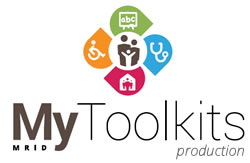A parent or carer arriving at a school for a SchoolKit Clinic may or may not feel completely at ease in the school environment. Every courtesy and consideration should be shown to them as they shift from the business of getting to the school and arriving on time (which is often stressful in itself) to preparing to go into the clinic.
Everything that happens during a SchoolKit Clinic revolves around the child and their family. It should be recognised that it can be very intimidating for a parent or carer (and their child) to have attention focused on them with so many people (some unfamiliar) present.
Every effort should be made to make them welcome and to put them at ease, including:
- The right choice of room and arrangement of chairs, as well as the relaxed sharing of food and drink during the clinic.
- All participants introduce themselves (name tags can be helpful), explain their role and name the agency they are representing.
- Warm, friendly language and an open style of communication are important throughout. Questions are asked in a sensitive way and are open-ended wherever possible.
- Jargon and acronyms should be avoided wherever possible. Where professional terms are needed, a clear explanation as to what is being discussed should be given.
- The purpose of the clinic should be explained to the parents or carers particularly if it is the first SchoolKit Clinic they have participated in, as they might find it different from a more conventional medical appointment.
- The school clinic team’s respect for the family’s privacy and the confidentiality of all information shared during the clinic should also be reiterated. It should be checked that the family also understands and agrees that some conversations will be held between the school and the health team outside of the clinic so as to facilitate whatever actions may be necessary to help meet their needs.
In a SchoolKit Clinic, parents or carers are respected as the experts in understanding their child and directing their care. It is essential that this is emphasised in the way that all other clinic participants address, talk to, and respond to them. The value of their contribution should be stressed repeatedly and their thoughts and ideas validated.
Active Participation
During clinic discussions parents or carers will participate and contribute in a number of ways:
- They will be asked to describe what they feel are their greatest issues, frustrations and challenges at this time, and what their hopes are for their child and their family. The school may offer further input regarding the specifics of the child’s health, psychosocial and family situation.
- Parents or carers are encouraged to ask questions at any time.
- Parents or carers are also encouraged to volunteer information at any time throughout the clinic, to add to, or correct, what someone else is saying.
- Parents or carers are encouraged to take their time in answering questions or discussing any sensitive issues. Others in the clinic should be sensitive to this.
- The parent or carer will offer suggestions and contribute ideas throughout the clinic about what existing strategies might be modified, or what new strategies might be put in place, to help and support them in caring for their child.
- Parents or carers may need to be given time to write down anything that might be important for them to remember later, including names and contacts for new services they might want to explore, or the names of new medications.
Concluding With an Action Plan
At the conclusion of the SchoolKit Clinic, agreed goals and outcomes are clearly summarised so that all participants understand these and the required actions.
A clinic report is generated. A written summary of the agreed management plan given on the day may be helpful.
The family may wish to have ongoing liaison – a contact person (usually from the school) should be identified who will follow-up with the family on what actions have been taken. They also become a resource or liaison person for the family should they have any further questions or concerns that need to be addressed later.




